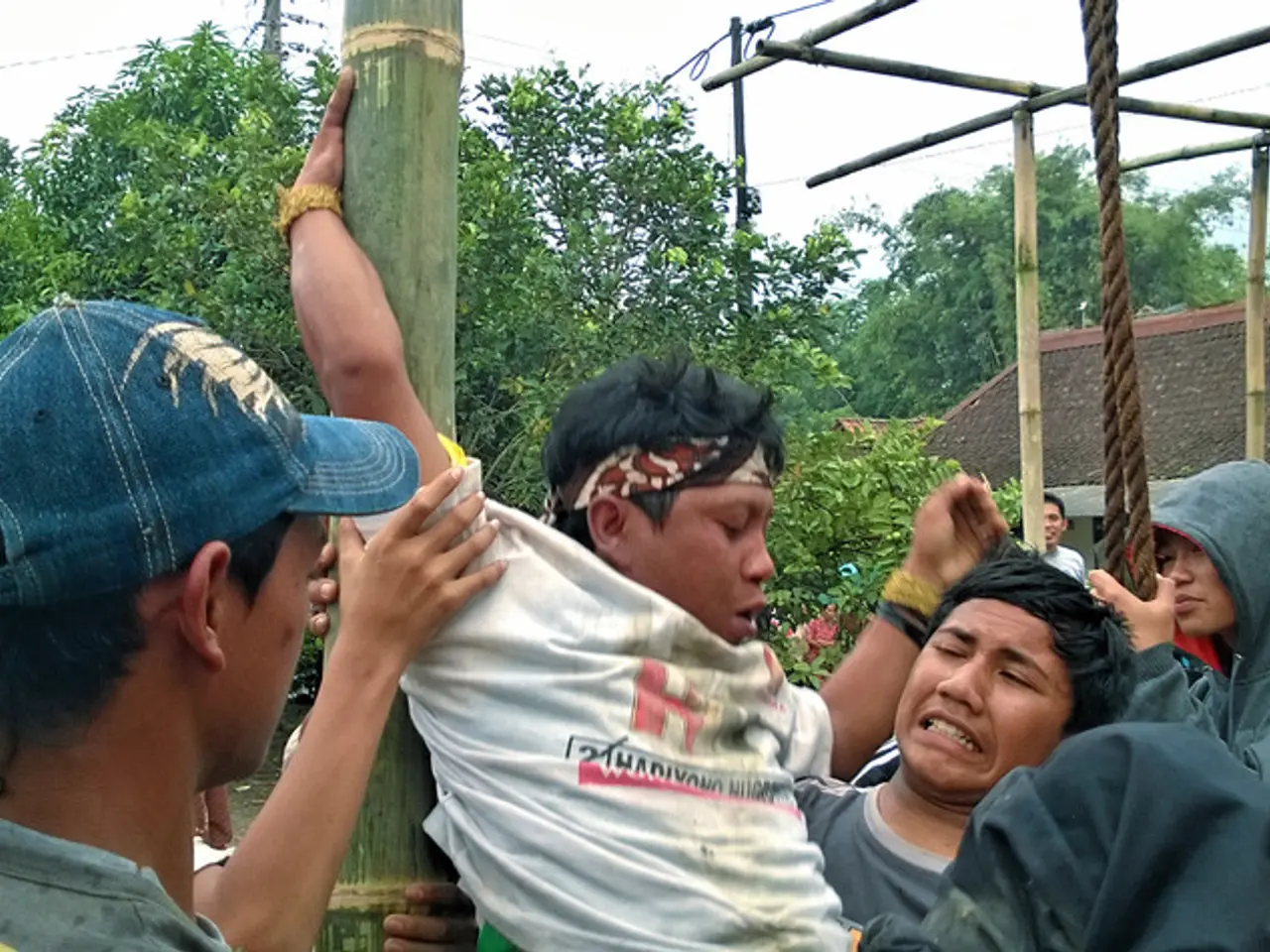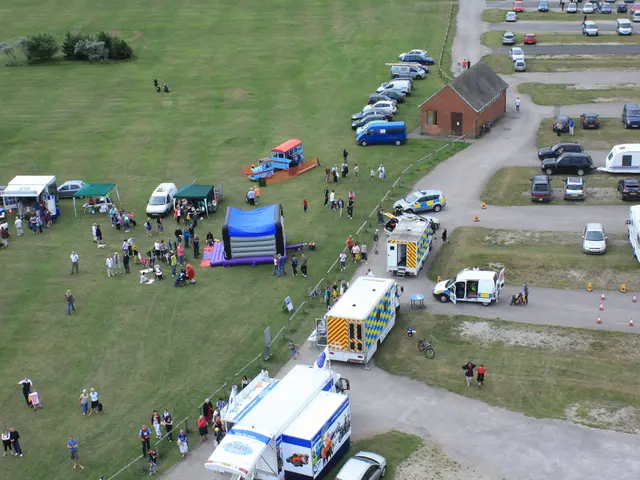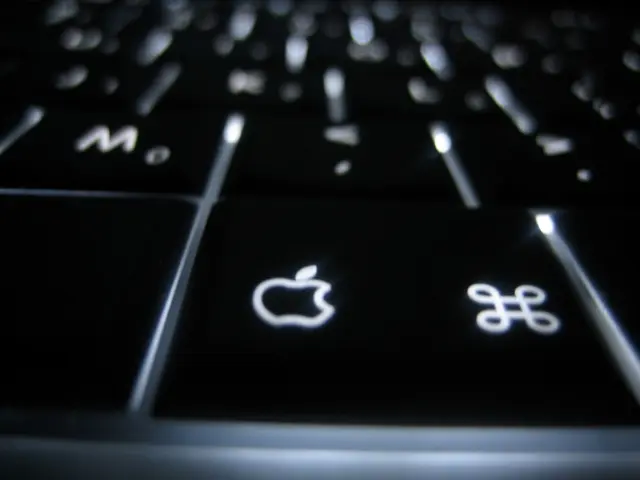Strategies to Ignite Your Vitality: 7 Methods for Maximum Energy Surge
In the realms of psychology and social interaction, self-awareness and body language play significant roles. When it comes to combating nerves, understanding the science behind mental preparation can be a game-changer.
Enter Daniel McGinn's book, "Psyched Up: How the Science of Mental Preparation Can Help You Succeed," which delves into the effective use of pre-performance rituals and warm-ups by professionals to enhance their performance and manage nerves.
One key strategy highlighted by McGinn is the employment of powerful physical rituals. This could involve engaging in physical warm-ups or gestures such as power poses or stretches to activate confidence and reduce anxiety. TV host Stephen Colbert, for instance, has a unique pre-show ritual that includes a series of specific actions, from ringing a bell to making eye contact with his band leader.
Another strategy is the use of focused breathing exercises. Controlled breathing techniques can help calm the nervous system and center attention before performing.
Mental imagery and visualization also play a crucial role. Visualizing successful execution of the task or performance can build mental preparedness and confidence. Researcher Gary Latham found that using inspirational photos or videos can help individuals perform better by reminding them of the feeling of success and pride.
Pre-performance routines are another essential tool. Developing consistent, repeatable routines can create a sense of control and reduce unpredictability, thereby easing nervousness. Jeremy Jamieson's 2010 study showed that priming students with a statement to reframe their nerves increased their scores on a practice GRE exam, and the effect of this priming persisted for the REAL GRE test more than a month later.
Reframing anxiety as excitement is another effective technique. Instead of trying to suppress nervous energy, consciously interpreting it as excitement can improve arousal and motivation. Alison Wood Brooks found that this reappraisal can indeed improve performance.
Self-affirmation is another strategy that can boost self-efficacy. Reminding oneself of past successes and strengths can help build confidence before a task.
McGinn emphasizes that these rituals work because they help channel physiological and psychological arousal into productive energy rather than debilitating anxiety. The structured nature of rituals also helps performers feel grounded and ready, reducing the impact of distracting thoughts or fear of failure.
These techniques, grounded in scientific research on mental preparation, are used by top athletes, performers, and leaders to optimize their outcomes and manage pressure effectively. Implementing personalized rituals tailored to one’s preferences and context is key for maximizing their benefits.
Whether you're a TV host, student, athlete, or business leader, incorporating pre-performance rituals into your routine could be the key to unlocking your full potential and managing nerves effectively.
Engaging in pre-performance routines, such as practicing power poses, focused breathing exercises, mental imagery, or self-affirmation, can help individuals enhance their lifestyle and manage nerves effectively, as outlined in Daniel McGinn's book, "Psyched Up: How the Science of Mental Preparation Can Help You Succeed." These strategies, including reframing anxiety as excitement and implementing personalized rituals, are essential for personal-growth, education-and-self-development, and fashion-and-beauty, as they can boost self-efficacy and promote mindfulness.






